Carbon footprints and environmental responsibility
stressbaby
15 years ago
Related Stories

GREEN BUILDINGHouzz Tour: The Goal? A Big Impression but a Small Footprint
This family home in Nevada City, California, embraces the environment with enthusiasm and style
Full Story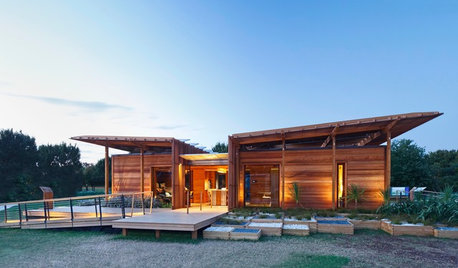
GREEN BUILDINGStudents’ Award-Winning Home Leaves Small Footprint
A cost-effective, solar-powered New Zealand prefab home has good looks to match
Full Story
PRODUCT PICKSGuest Picks: 20 Earth-Friendly Accessories for Baby
Get your nursery in top ecofriendly form with essentials and extras that have organic cred or a low carbon footprint
Full Story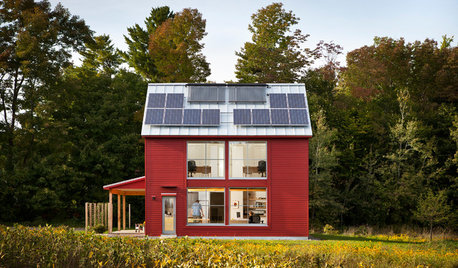
GREEN BUILDINGGoing Solar at Home: Solar Panel Basics
Save money on electricity and reduce your carbon footprint by installing photovoltaic panels. This guide will help you get started
Full Story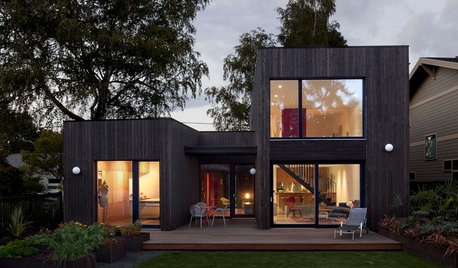
BASEMENTSDesign Workshop: Is It Time to Let Basements Become Extinct?
Costly and often unnecessary, basements may become obsolete — if they aren’t already. Here are responses to every reason to keep them around
Full Story
PRODUCT PICKSGuest Picks: Beautiful Things You Can Feel Good About Buying
Upcycled, ecofriendly or just made responsibly, these home accessories and furniture pieces will keep your conscience clear
Full Story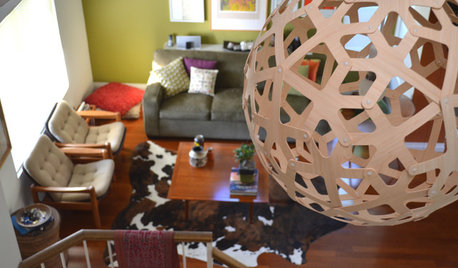
DECORATING GUIDESNew Classics: David Trubridge's Coral Pendant Light
Shadow play and sculpture mingle in this organically inspired light fixture with an environmental conscience
Full Story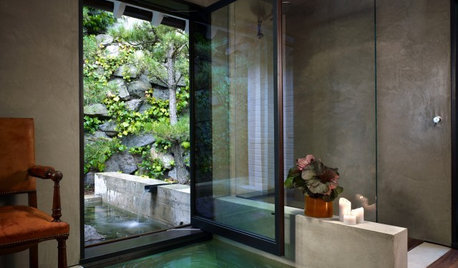
BATHROOM DESIGNGreen and Clean: Ecofriendly Tub and Shower Surrounds
Keep your bathroom beautiful and your footprint green with long-lasting, ecofriendly surface materials
Full Story
LANDSCAPE DESIGNLiving on the Edge of the Wild
When Mother Nature is your neighbor, the possibilities — and responsibilities — can be that much greater
Full Story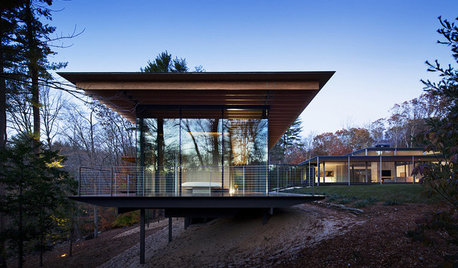
ARCHITECTUREDesign Workshop: How to Make a Home Sit Lightly on the Land
Piers, cantilevers, towers and more can help minimize a home’s environmental impact on its site
Full StoryMore Discussions







tsmith2579
stressbabyOriginal Author
Related Professionals
Anderson Landscape Contractors · Bowie Landscape Contractors · Deer Park Landscape Contractors · Fort Atkinson Landscape Contractors · Fort Wayne Landscape Contractors · Gresham Landscape Contractors · Hawaii Landscape Contractors · Lady Lake Landscape Contractors · Mendota Heights Landscape Contractors · Mount Kisco Landscape Contractors · North Ridgeville Landscape Contractors · Peachtree City Landscape Contractors · Teaneck Landscape Contractors · Eastlake Landscape Contractors · Carson Solar Energy Systemsagardenstateof_mind
chris_in_iowa
chris_in_iowa
stressbabyOriginal Author
tom_n_6bzone
jbest123
krayers
oakhill (zone 9A, Calif.)
wetfeet101b
tom_n_6bzone
agardenstateof_mind
garyfla_gw
tom_n_6bzone
calliope
jbest123
tom_n_6bzone
poppa
calliope
stressbabyOriginal Author
greenhouser
jbest123
tom_n_6bzone
calliope
lilydude
agardenstateof_mind
tom_n_6bzone
sdrawkcab
lilydude
poppa
sdrawkcab
tom_n_6bzone
oregon_veg
sdrawkcab
tom_n_6bzone
banana_fun
nippersdad
tom_n_6bzone
stressbabyOriginal Author
tsmith2579
nippersdad
tom_n_6bzone
nippersdad
hex2006
littledog
lilydude
littledog
Dan _Staley (5b Sunset 2B AHS 7)
savedollars1